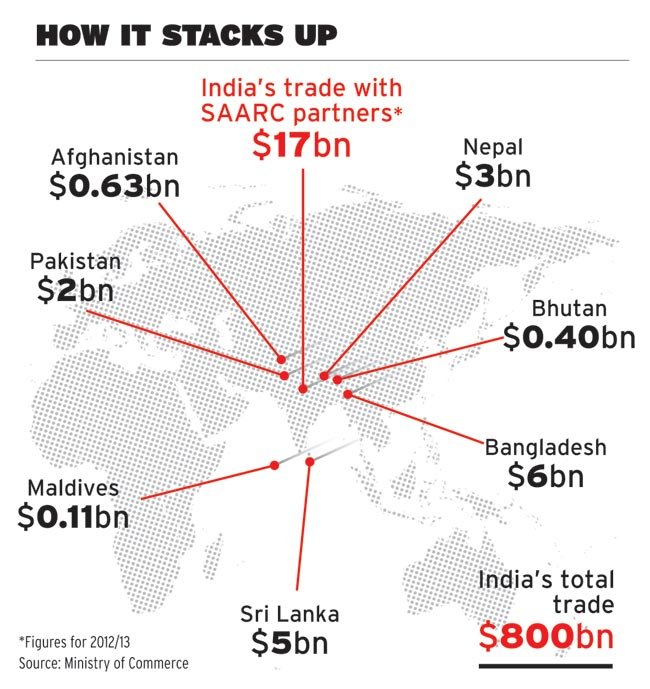To facilitate trade and transit through cross border of India and its South Asian countries. India takes many
step to develop relation. Trade and connectivity are crucial to bilateral ties. In this regard India has taken
some key initiatives to further its relations with South Asian countries. These include the provisions for duty
free products into Indian markets, Investment in the development of India is also focused on strengthening
regional connectivity using platforms that promote regional co-operation.
Such as the “BIMSTEC” (BAY OF
BENGAL INITIATIVE FOR MULTI-SECTORAL TECHNICAL AND ECONOMIC CO-OPERATION) and “BBIN” (
BANGLADESH-BHUTAN INDIA NEPAL)
Both India and Bangladesh are signatories to the BBIN motor vehicle
agreement (MVA) once functional this agreement will enable the unrestricted movement of vehicle from the
member countries within BBIN region, via designated routes, Including Cross border ones, This further
necessitates the development of border checkpoint facilities on Indian border with its neighboring Countries.
The nature of bilateral relations between neighboring countries determines one’s approach towards its border
with other.
Efficient Connectivity infrastructure is a prerequisite for regional economic integration. Trade between South
Asian countries could be close to $ 67 Billion. Three times more the actual figure of $ 23 Billion various
structural impediments tariff and non-tariff barriers have limited the trade potential in the region and in turn,
affected regional integration. Following Economic Liberalization in the twentieth century, countries in South
Asia have prioritized trade with distant European and South East Asian Countries but have effectively
maintained a close border within the neighborhood. Land border crossing between India and its neighboring
countries are under two categories LCS and IMCPS. The ICP’s consolidate both facilities within a single
facilitation zone. All LCS fall under the central board of Indirect Taxes and Customs. The LCS are border
crossing where trade in goods occurs between India and its neighbor. The IMCPS are nodal points for
facilitation of passenger movement across Indian Land, Sea, Air border. Improving cross-border trade
infrastructure is also driven by India’s international obligation. In April 2016, India ratified the world trade
organization’s trade facilitation agreement(TFA). India has also formulated a national trade facilitation action
plan 2020-2023, to reduce the time.
The national committee on trade facilitation (NCTF 2020) Set the target for clearance of goods from an LCS
within 48 hours for import and 24 hour for export by enabling paperless transactions and infrastructure
augmentation. Additionally In 2017, India also ratified the transport International routers or international road
transport Convention(TIR). However, among India’s neighbors ,only Pakistan and Afghanistan are signatories
to it.
